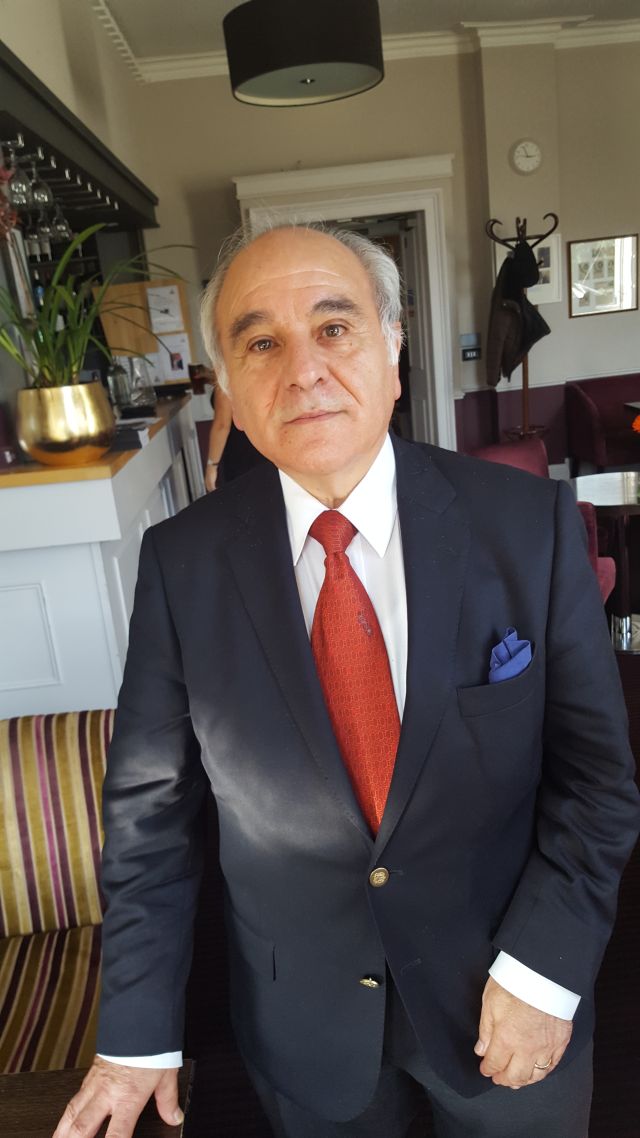Forensic Medicine in Edinburgh and its influence on the evolution and development of this Discipline.
with Professor Anthony Busuttil

Regius Professor of Forensic Medicine at the University of Edinburgh, Tony Busuttil hails from Malta, and began by citing two links between Scotland and his homeland : Maj-Gen Sir David Bruce who led investigation into the cause of Malta Fever or brucellosis had a mother who hailed from Perth, and Lord David Douglas-Hamilton one of four brothers who were simultaneously Squadron Leaders in the RAF commanded the Edinburgh 603 Squadron which flew out of Ta’ Qali airfield until his death in 1944 : with the coming of peace Tony’s father bought the Mess and that was where he was born at the end of 1945.
The word forensic derives from forum, the place where in Roman times justice was dispensed. In 1583 The University of Edinburgh became Scotland's first to be established by a Town Council, and arising out of the barber surgeons it founded a Faculty of Medicine based on those of Padua and Leipzig in 1726 to attract foreign students and save Scottish ones from having to go abroad. The Royal Infirmary of Edinburgh was created in 1736.
The development of medical jurisprudence and legal medicine is strongly grounded in the concept of the Expert Witness in both the civil and criminal courts to assist them in their consideration of medical matters. The need for such expertise had been clearly shown in the assassination of Julius Caesar, and the articles for the division of the Roman Empire made provision for medical experts in the government of the new Eastern Empire : later Papal Courts were guided by eminent physicians. Here in Scotland where the courts seek proof beyond reasonable doubt, it is the Procurator Fiscal who examines the cause of death on behalf of the Sheriff, which in earlier times could have resulted in the confiscation of estates for the Crown. The Expert Witness is there to assist the court and not to win cases, providing an opinion which can be challenged only on cross-examination. He appears usually with the support of a report and/or other witnesses lest his expert credentials might be not good enough or too specific, and until recently he was immune from any civil action in the event of a case being lost. Early evidence by doctors lacking the necessary expertise had resulted in miscarriages of justice such as the notorious Appin Murder of 1752 which was the subject of a case review in 2013 when experts led by Professor {now Dame} Sue Black found James Stewart not guilty of the killing of Colin Campbell of Glenure.
Scottish jurisprudence as a medcial speciality was born in 1789, and two years later Edinburgh professor Andrew Duncan used the term medical jurisprudence for his lectures, the first in the British Isles on the medico-legal field. Through the nineteenth century Edinburgh University through the production of doctors and lawyers exported its teaching throughout the English-speaking world. Tony’s most far-flung experience was flying on a Thursday in a jet with no seats from RAF Brize Norton via Ascension Island to the Falklands and being back home on the Sunday! An Expert Witness has just the jury to convince, but is always only as good as his last case. The benefits of DNA must be subject to rigorous prevention of cross-contamination and meticulous laboratory practice and scrutiny.